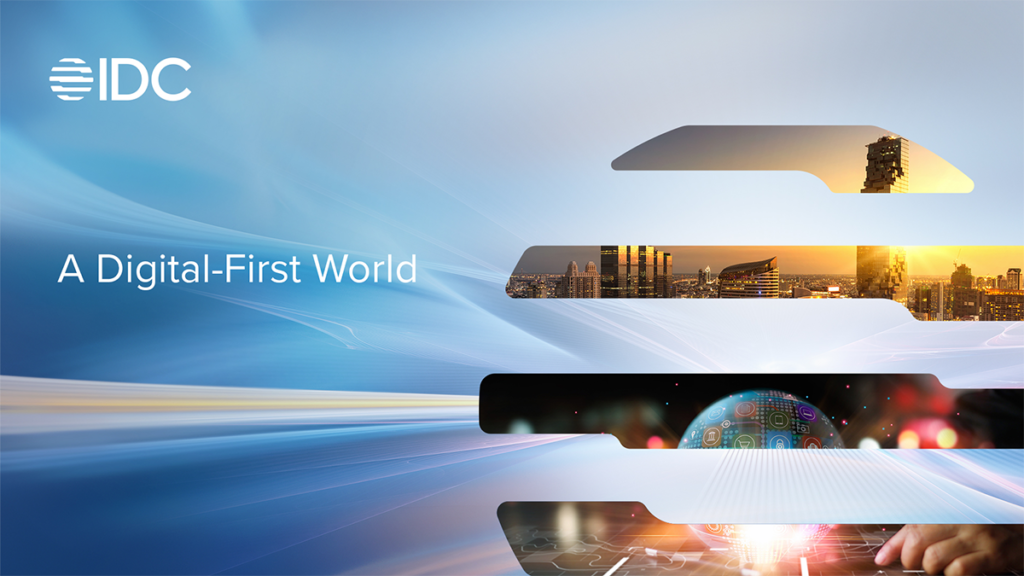Economic barometers today reflect an atmospheric change in digital transformation (DX). The pandemic accelerated DX in this new world, while disruptive and complex macroeconomic, microeconomic and technology currents are rapidly influencing one another, creating swirling winds that business and technology leaders must navigate.
According to IDC WW DX Sentiment Survey 2021, we now have 53% of organizations that are digitally determined, 51.3% with DX roadmaps in place, and 44.7% with long-term transformation plans. On the consumption front, 28% of US consumers used telemedicine for the first time in 2020 and in Asia, many healthcare institutions reported the use of tele-consult jumped from <10% to >80% during the same period.
Smartwatch/fitness penetration also grew 21%, attracting many first-time buyers as consumers were forced to do everything at home. This spurred an emerging new segment of fitness apps for people working out remotely. We expect wearable-based fitness services to explode, driving >US$1 billion in worldwide spending by the end of this year.
Hours of device usage was up 26% as consumers spent more time online and on mobile, leading consumers to embrace new security, identity, and privacy habits. Consumer usage of VPNs, password managers, and parental controls all grew by more than 50%. We expect annual growth in consumer use of such tools to sustain at over 30% annually in the post-pandemic world, at least for the next few years. By the end of 2021, we will have more than 2.2 billion digital consumers worldwide, taking digital-first to new heights.
Digital is a permanent, yet dynamic fixture in this world. Digital-first applies to any entity (company, government, consumer, patient, constituent) that is always asking:
“Is there some digital-based capability/enhancement that could improve our lives and desired outcomes?”
And it is not limited to business and economic performance.
Entities and people are more connected, with greater interdependencies in a digital-first world. Entire ecosystems can intelligently leverage data to their advantage because access to digital technologies extends from individuals to organizations, and from governments to societies.
A digital-first world requires a digital-first economy. Such an economy expands the impact of digital technologies in the production and consumption of digital products, services, and experiences to at least 65% of GDP. In this economy, all industries will be driven and shaped by Future Enterprises.
The Future Enterprise is IDC’s vision for how organizations must operate and invest to participate in increasingly digital-first markets. It is a framework for fostering a digital-first culture, one that leverages trusted industry ecosystems, generates profitable revenue growth from empathetic customer experiences, and demonstrates an ability to adapt operating models to complex customer requirements. All of this is built on digital infrastructure and enabled by an intelligent, empowered, and well-connected workforce.

Although the world is now firmly anchored in a digital-first economy, the economic and business outlook for the next 3 years remains highly fluid due to the pandemic and a growing range of global challenges. What we can be sure of is that as the world slowly but surely moves from a pandemic to a digital-first state, we will see permanent shifts in the way we live, work, play and learn. A digital-first world means the following:
- Research has shown that it takes an average of 66 days to form a new habit. Consumers are settling into new patterns of behavior in response to the multiple infection waves. This is fertile ground for new habit formation. Even more consumption will be done via digital channels, and while some will return to old habits, the overall consumer landscape has changed forever.
Future consumers in a digital-first economy will be shaped by ecosystem-led innovations. More than 1/3 of organizations globally have already collaborated with ecosystem partners and shared their expertise, data, insights, and applications more frequently because of the pandemic. This activity has led to more new products, services, and experiences. Businesses and industries will prioritize ecosystem collaboration to diversify risk and create new opportunities via transformed operating/business models. - Governments and the public sector will accelerate their efforts to be resilient, creating new digital-first citizen/resident engagement models and platforms to focus on the health and the socioeconomic well-being of their populations…and much more.
By 2023, the tech talent crunch will increase 2-fold because of the perfect storm of COVID-19 restrictions, increasing DX and spurring new consumer habits. Business and government leaders will need to skillfully manage the winds of change if they are to thrive, whatever the ongoing effects of COVID-19.
Welcome to sunny, but unsettled skies in a digital-first world! Now that we know how our digital-first economy is transforming our lives today, we are really looking forward to seeing where digital-first initiatives will bring us tomorrow. For more research on the Future Enterprise, click the button below.
Co-Author: Rick Villars




